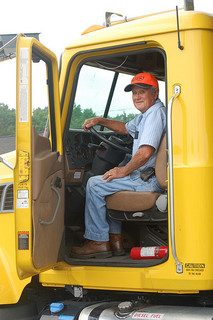
As the baby boomers age, so does the American workforce. It is projected that by the end of this decade, a quarter of the nation’s workforce will be fifty-five or older. Sociologist Amy Blackstone, of the University of Maine, took interest and undertook a study of this group’s workplace experiences. In a piece for the Bangor Daily News, Blackstone explains the distressing results:
While older workers generally report positive experiences on the job, there are notable patterns in the harmful experiences they report. A significant number of older workers report feeling undervalued and bullied at work. Further, many older workers do not speak up about their negative experiences, nor do those who witness bullying or harassment of older workers intervene on their behalf.
In Blackstone’s survey results, older workers said they felt devalued by their younger coworkers, as though they were useless. They felt ignored and even bullied. One woman wrote:
“After about age 60-65, I began to notice that people would sometimes ignore me as though I had become invisible.”
Blackstone provides a few suggestions for improving employment for older workers. These include educating and reminding employers and employees of the importance of a positive workplace atmosphere, the knowledge and experience older workers may hold, and the need for support and bystander intervention.

